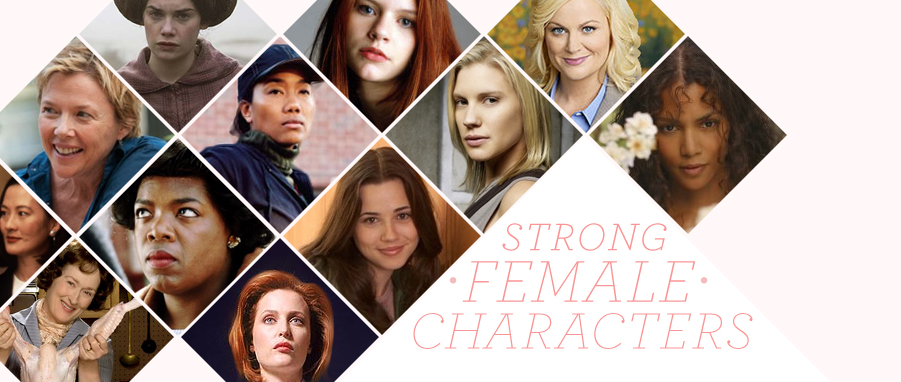Dear Sibyl, I'm trying to figure out how to be a supportive friend to one person (friend A), while not feeling like I'm talking trash behind another friend's back (friend B). Sometimes A will get frustrated about a conversation or something else that B said/did. She has a point, and I've often supported that, but then it felt like I was entering mean girl territory. Is there a good way to be supportive, but not nasty? I'm also trying to figure out how to not be the go-to person for these comments, since I feel like I'm betraying B. Sounds like I'm back in middle school, uugghh!
Thanks, Gossip Girl
Dear GG,
Friend A is involving you in a fun little game of Triangulation. That’s when you have something you need to say to one person, but instead of making a straight line between you and them, you add a whole new angle by saying it instead to a third person.
Relationships are confusing. Everyone needs to express how they are feeling about their friends from time to time to someone else, for some reality testing and to work out how to address it with that person. A simple conversation of, “Uh, that was whack when she made that joke about my kid, right? Okay?! How do I tell her to step off without just saying ‘86 your shit’ and dropping a sippy cup on the ground?” is sometimes necessary.
But here’s how you can tell if it’s triangulation, and not normal relationship processing:
1. Does Friend A plan to do anything about Friend B’s behavior? If she is preparing to confront Friend B, or, at the very least, put some boundaries between her and Friend B so she stops getting hurt, then you can totally walk her through that. But if she is just using you as a validating force to make her feel better about secretly hating on Friend B while she still hangs out with her, then we need to rename her Frenemy A, because what they have is less a friendship, more a bad romance.
2. Is Friend A saying things to you that she would never, ever, say to Friend B’s face? If asked, “Hey, you’ve seemed sorta weird to me lately. Is everything okay?”, would Friend A fess up? If not, then this is at best a bitch session, and at worst, a weird power play to get you “on her side” against Friend B. You’ve got to take yourself out of the equation.
So, if you’ve realized you are indeed in a triangulating situation, then here’s what you do. You tell Friend A that you are no longer willing, under any circumstances, to discuss Friend B. You can do it in such a way that is not judgmental of what Friend A is doing, by saying, “I’m working on my personal relationships, and realizing that if I say things directly, it really helps my peace of mind. So, let’s talk about us and how we’re doing, and leave Friend B out of it.”
Will it be awkward to say this? HELL YES. But if there’s one thing I can encourage you, Gossip Girl, or ANY of my dear readers out there, it’s this: BE AWKWARD. We must, as a community and as a culture, increase our capacity for awkwardness in human relationships. When things are uncomfortable, perhaps it is because we are getting very close to them being real.
If you need a warm up, start small. Bring up your dead dad at a cocktail party. Go ahead. Mention your impending divorce at the library, when someone sees the stack of self-help books you’re checking out. With a couple of these chance encounters under your belt, having not been reduced to tears when the other person looked at you askance at first but then said, “Oh yeah, this book here at the top of your pile really helped me when I had to cut my mom out of my life because she was using crack”, you may have the courage to tell Friend A that you’re no longer interested in chats about Friend B.
You’ll have to reinforce it, probably a few times. Friend A will fall back into the old patterns of discussion, will even say, “I know we said we wouldn’t talk about Friend B, but you can NOT believe what she did the other day when she got in my car, smelling like . . .” Cut her off right there! Don’t take the bait! Resist your olfactory curiosity and say, “Oh, let me stop you here. I was dead serious about my request not to talk about Friend B. I need to have my own experience of her right now. Why don’t we discuss your job situation---did you say you were getting laid off, or getting a promotion? I know it was something career-related, the few months ago that we actually got around to talking about you. Let’s not let Friend B take over our catch-up time. Fill me in!”
It will be surprising to find how this changes your friendship with Friend B. You may find her delightful, without that worm in your ear of all the ways she pissed off Friend A recently. Conversely, you may realize that you don’t even like Friend B, and you were just keeping the relationship with her because you were addicted to following the soap opera between she and Friend A, and it’s time to let that friendship go.
With all that time freed up from worrying about what Friend A and Friend B are going to do next, you may have chance to talk about . . . yourself.
xoxo,
Sibyl
Do you have a quandary that you'd like Sibyl to help you with? Submit it here!






















